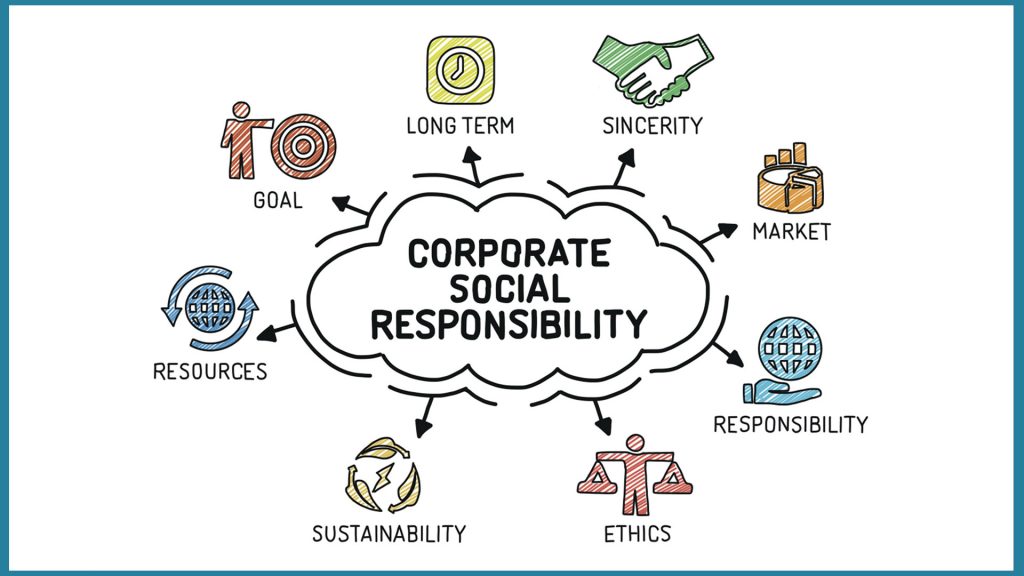Table of Contents
ToggleA Complete Guide for NGOs to Secure CSR Funding in India
 Introduction: Unlocking the Power of Corporate Partnerships
Introduction: Unlocking the Power of Corporate Partnerships
Over the past decade, India has witnessed a transformational shift in the way social development is funded. With the enforcement of Section 135 of the Companies Act, 2013, India became the first country to legally mandate Corporate Social Responsibility (CSR) for eligible companies. As a result, every year, thousands of crores of rupees are funneled into community development programs through CSR.
For NGOs, this presents an unprecedented opportunity to scale impact, reach underserved populations, and partner with influential corporate entities. However, CSR funding is not a one-size-fits-all solution. It requires a deep understanding of legal, financial, and operational frameworks. NGOs must position themselves not just as beneficiaries but as credible, transparent, and impact-driven partners.
This comprehensive guide will walk you through everything an NGO needs to become CSR-ready—from registrations and documentation to proposal writing and impact reporting.
1. Legal Eligibility Requirements: The Foundation of Credibility
Before even initiating conversations with CSR teams, your NGO must satisfy basic legal and regulatory standards. These criteria ensure that only serious, accountable, and compliant organizations are considered for CSR partnerships.
✅ Accepted Legal Structures:
To be eligible for CSR funding in India, your NGO must be registered as any one of the following:
Section 8 Company under the Companies Act, 2013
Registered Public Trust
Registered Society
These three structures are recognized under CSR rules and are considered legally reliable frameworks for nonprofit activity.
🧾 Tax Registrations:
You must have the following Income Tax registrations:
PAN Card: Required for all financial transactions.
Section 12A Registration: Grants exemption from income tax.
Section 80G Registration: Allows donors (including corporates) to claim tax deductions on donations.
Why it matters: Companies must ensure their CSR spend qualifies for tax benefits. Funding an NGO without proper tax registrations can lead to compliance risks for them.
🕰️ Proven Track Record:
Your NGO should have at least three years of experience in the development sector. This demonstrates capacity, experience, and operational stability—key concerns for CSR funders who are accountable to shareholders and boards.
2. Mandatory Registrations: Your Gateway to the CSR Ecosystem
a) CSR-1 Form – Mandatory for All NGOs Seeking CSR Funds
As per the latest amendment to the CSR rules:
NGOs must file Form CSR-1 with the Ministry of Corporate Affairs (MCA).
Filing is done online and requires a valid Digital Signature Certificate (DSC) of the authorized signatory.
Once submitted and verified, your NGO will be issued a unique CSR Registration Number.
This number acts like a gate pass into the CSR ecosystem. No NGO can legally receive CSR funding without it.
b) NGO Darpan Portal by NITI Aayog
Though not mandatory for all CSR funds, this portal is:
Essential for government-linked CSR projects or large public sector undertakings.
Often required by private companies as part of their internal due diligence.
A strong credibility enhancer, as it verifies your key documents, governance, and project data.
3. Key Documentation: Be Audit-Ready at All Times
Companies typically follow rigorous due diligence protocols. Being document-ready reflects professionalism and makes the funder’s job easier.
Core Documents You Must Have:
| Document | Purpose |
|---|---|
| Registration Certificate | Legal identity |
| PAN Card | Financial and tax identity |
| CSR-1 Acknowledgement | Proof of eligibility |
| NGO Darpan ID | Credibility and visibility |
| 12A & 80G Certificates | Tax exemptions |
| List of Governing Members | Governance transparency |
| Digital Signature Certificate (DSC) | Required for CSR-1 filing |
Keep digital and hard copies well-organized. Use Google Drive or other cloud tools to make documents accessible during proposal submissions and corporate audits.
4. Financial Reporting: Show You Can Manage Large-Scale Funds
For a corporate, giving funds is only half the story. The other half is risk management. They want to ensure that their CSR funds are utilized transparently, tracked correctly, and reported professionally.
Financial Best Practices:
Maintain audited financial statements for the past three years.
Clearly demarcate administrative costs from program expenses.
Provide Utilization Certificates (UCs) for any past or current funding received.
Conduct external audits annually or for every large-scale project.
Pro tip: Use accounting software like Tally, QuickBooks, or Zoho Books, and hire a dedicated finance manager or consultant if needed.
5. Project Proposal: Your Blueprint for Change
A well-crafted proposal can be your strongest tool to inspire confidence. It should present a clear, feasible, and impactful plan tailored to the corporate’s CSR objectives.
What a Winning Proposal Should Include:
Project Title & Summary
Problem Statement: What issue are you addressing?
Target Beneficiaries: Who are they, and how will they benefit?
Geographical Focus: Clear details of where the project will be implemented.
Activities and Timeline: Monthly or quarterly action plans.
Budget: Itemized with justifications.
Monitoring & Evaluation: How progress will be tracked and reported.
Sustainability: How the impact will continue after the project ends.
Align with SDGs:
Tie your proposal with relevant Sustainable Development Goals (SDGs). For example:
Education Program → SDG 4: Quality Education
Women Empowerment Project → SDG 5: Gender Equality
Water/Sanitation Work → SDG 6: Clean Water & Sanitation
6. Impact Reporting: Proving Your Promise
Impact reporting isn’t just a requirement—it’s a powerful storytelling tool. Corporates are increasingly focused on data-driven, verifiable outcomes. They need to showcase impact in their annual CSR reports and sustainability disclosures.
Components of Strong Impact Reports:
Before-After Data: Metrics that show progress.
Case Studies: Real lives impacted.
Visual Evidence: High-quality photos and short videos.
Independent Evaluations: Third-party assessments add credibility.
Annual Reports: Comprehensive documentation of your organization’s work.
7. Case Studies: Bring Your Impact to Life
Case studies are micro-narratives that demonstrate how your work changes lives. They go beyond numbers to show human transformation.
Anatomy of a Good Case Study:
The Context: Introduce the beneficiary.
The Challenge: What problems were they facing?
The Intervention: How did your NGO step in?
The Change: What improved? Any quantifiable data?
The Quote: A powerful, authentic testimonial.
These are not just marketing tools—they are evidence of effectiveness.
8. Administrative Costs: Stay Within the Legal Limit
According to Indian CSR law, no more than 5% of the total CSR expenditure can be used for administrative overheads. This is to ensure maximum funds are used directly for beneficiary impact.
Includes:
Staff salaries (non-project)
Utilities and office rent
Office equipment and travel (if unrelated to the project)
Solution: Structure budgets carefully. Allocate salaries under “project implementation” where applicable and justify costs clearly.
Tips to Strengthen Your CSR Pitch
Here are some strategies to make your NGO irresistible to CSR funders:
💼 Update Your Documents: Keep a digital repository for instant access.
📊 Use Visual Tools: Infographics, dashboards, and success videos.
🤝 Network with CSR Leaders: Attend CSR events, seminars, and use LinkedIn to connect.
💬 Incorporate Testimonials: From community members, local government, and past partners.
🎯 SDG Alignment: Reflect global standards in your pitch.
🤝 Offer Co-branding: Allow companies to co-brand your events, reports, or campaigns.
Conclusion: Building Trust, One Step at a Time
CSR funding is not charity—it is strategic philanthropy. Corporates want measurable impact, scalable solutions, and compliant partners. For NGOs, this means stepping up with professionalism, preparedness, and passion.
By aligning your operations with legal norms, maintaining transparent financials, telling compelling stories, and building strategic relationships, you can unlock not just one-time funding—but long-term collaborations that scale your mission.
Need Expert Help?
At IMPAAC Foundation, we empower NGOs to become CSR-ready with compliance audits, proposal writing, impact strategy, and network access. Whether you’re new to CSR or ready to scale, we’re here to walk the journey with you.
📩 Contact us today to unlock CSR funding and drive deeper social impact.




